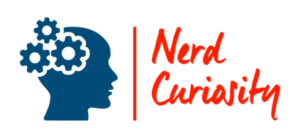Navigating the competitive landscape of product management, you might wonder if certifications are your golden ticket. In an industry where expertise is paramount, these credentials can either be stepping stones or stumbling blocks on your path to success. But the question remains: do they carry the weight to propel your career forward, or are they just shiny embellishments on your professional profile?

Certifications are not mandatory for product managers, but they can provide a structured learning path and validate your skills to employers.
As you read on, you’ll uncover a detailed analysis of the value certifications add to a product manager’s arsenal. From understanding the core competencies they offer to dissecting their real-world relevance, you’ll gain insight into how these programs can fit into your career trajectory.
The Role of Certifications in Product Management

Certifications can be a game changer in your product management journey, helping you gain recognition and enhance your skill set in a competitive field.
Understanding Product Management
Product Management is a multifaceted discipline that requires a blend of technical proficiency, business acumen, and user empathy. As a product manager, you are the linchpin in creating successful products by bridging gaps between engineering, design, and business teams. A certified product manager is well-versed in these areas and can navigate through the product lifecycle effectively.
Significance of Certifications for Career Growth
Certifications can play a pivotal role in your professional development. They demonstrate your commitment to the product management field and your eagerness to stay abreast of the latest practices. With a product management certification, you validate your expertise and show potential employers that you have the necessary competencies to succeed. Furthermore, being a certified product manager often leads to better job opportunities and the potential for a higher salary.
Evaluating Different Product Management Certifications

When considering a boost to your career, you’ll find that different certifications offer varied advantages. It’s crucial to appraise these accreditations carefully.
Popular Certification Programs
Several key players stand out when you explore the landscape of product management certifications. The Association of International Product Marketing and Management (AIPMM) offers credentials recognized across the industry for their focus on product lifecycle and marketing acumen. The Pragmatic Institute delivers a celebrated program, often renowned for its strategic approach to product management. Meanwhile, Product School provides certifications that align well with modern, tech-focused product management roles. Lastly, university-affiliated Product Management Certificate Programs can often provide a blend of academic rigor and practical application. Here’s a quick glance at what each offers:
- AIPMM: Comprehensive focus on the entire product lifecycle.
- Pragmatic Institute: Emphasis on strategy and business acumen.
- Product School: Tech and UX/UI-centered courses.
- University Programs: Often combines academic theory with real-world practice.
Comparing Curriculum and Course Content
When you dive into the curriculums, it’s evident that not all certifications are created equal. The Pragmatic Institute curates a curriculum that stresses strategic practices. They urge you to look beyond the immediate, teaching you to chart long-term directions for products. On the other hand, Product School often zeros in on contemporary tech products, offering insights into UX/UI design and modern software tools.
Courses from the AIPMM can give you an authoritative grasp on product marketing, which is essential if your aim is to steer products successfully in competitive markets. University-affiliated certificate programs frequently span broader subjects, ensuring you get a comprehensive education—yet, they might lack the up-to-the-minute trends of private institutes.
Strategic Benefits and Limitations

Embarking on the journey to become a certified product manager, you weigh the potential gains in strategic prowess against the investment of time and finances.
Enhancing Product Strategy and Vision
Securing a product management certification can significantly sharpen your product strategy and reinforce your product vision. You’ll gain cutting-edge insights into market planning and brand strategy, ensuring you’re well-equipped to navigate complex product lifecycles and consumer demands. Certifications often provide you with a more structured approach to product development, allowing you to articulate your strategy with greater precision and confidence.
Cost and Time Considerations
The pursuit of a certification is not without its drawbacks, primarily concerning cost and duration. The financial investment can be considerable, potentially requiring you to allocate budgetary resources away from other professional development opportunities. Time-wise, the process can span several months, during which the balance between your work and study efforts must be carefully managed to maintain effectiveness in both arenas.
Skill Development and Practical Application

Certifications can bolster your product management skills, blending theoretical knowledge with essential practical experience.
Key Skills Acquired from Certifications
When you enroll in a product management certification program, you’re signing up to enhance a variety of skills. Leadership and analytics are at the heart of what you’ll learn. Here’s a snapshot of the competencies you can expect to develop:
- Leadership: Gain the confidence to steer product teams and navigate the complexities of interpersonal dynamics.
- Analytics: Learn to decipher data, gaining insights essential for strategic decision-making.
- Technical Skills: Brush up on the latest tools and technologies shaping the industry.
- Product Lifecycle: Understand each stage from conception to launch, and beyond.
- Agile Methodology: Embrace the iterative processes that drive today’s product development.
These programs provide a structured environment where you can learn, apply, and reinforce these crucial skills.
Applying Knowledge to Real-world Scenarios
Once you’ve acquired these skills, the next step is putting them into action. Real-world application is pivotal, and your certification should offer hands-on projects or simulations. For example:
- Product Development: Apply your new skills by partaking in simulated product launches, working through challenges you’d face in a real setting.
- Implement Agile methodologies within team projects to experience how flexibility and adaptability can drive product success.
Career Impact and Professional Networking

In the realm of product management, earning certifications can lead to new career heights and serve as a catalyst for deepening your professional connections.
Career Advancement Opportunities
Certifications in product management can significantly enhance your career prospects. Equipped with recognized credentials, you’re more likely to catch the attention of hiring managers and increase your potential for a better salary. Employers often view certifications as evidence of your commitment to professional development and mastery of industry standards. This investment in your education demonstrates a readiness to tackle more complex roles and responsibilities.
Building a Professional Network
Pursuing a certification often comes with more than just the coursework; it’s an opportunity to meet peers and industry leaders. As you study and prepare, you’ll likely interact with others on a similar journey, broadening your professional network. This network can be invaluable, not just for finding job opportunities, but also for exchanging innovative ideas and best practices. Remember, the relationships you build today could be the resources or allies you rely on tomorrow.
Conclusion

When deciding whether to pursue a product management certification, consider your career goals. If you’re aiming to boost your salary or seek new job roles, a certification can be a strategic move. Often, the skills and expertise gained from these programs turn into valuable assets in your professional toolkit. Notably, certifying bodies cover extensive aspects of the role, from concept to launch.
It’s imperative to acknowledge that real-world experience is also highly valued. Employers seek evidence of your hands-on capabilities. Thus, blending experience with the formal endorsement of your skills, such as a certification, can make you stand out.
Investing in certification could pay off—the costs range, but the value matches the expertise you gain. If you’re new to the field, the structured learning pathway can fast-track your understanding. For veterans, these programs can refine and update your skill set, especially as industry standards evolve.
You’ll need a balanced approach. Make sure to weigh the pros, like skill acquisition and potential career growth, against the cons, such as time and financial investment. Your decision should align with your personal and professional aspirations. Remember that while certifications can be beneficial, they’re one part of a broader career development strategy.
